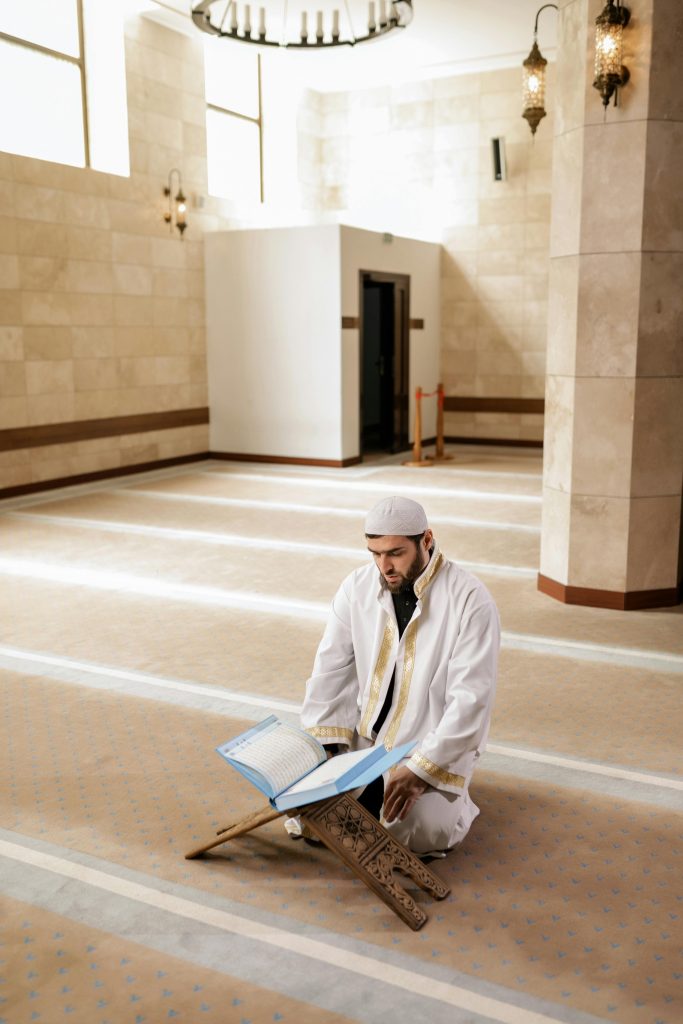
Introduction to Islamic Economics
Islamic economics is a unique field of study that combines economic principles
with the ethical and moral guidelines set forth by Islam. It aims to create an economic system based on justice, equitable distribution of resources, and the promotion of communal welfare. The core principles of Islamic economics can be derived from the Quran and the Hadiths
(sayings and traditions of Prophet Muhammad ﷺ).
This blog post will explore the fundamental concepts of Islamic economics
through verses from the Quran and hadiths, as well as through the Sunnah (practices) of the Prophet Muhammad ﷺ.
1. Wealth and its distribution
The Quran emphasizes that all wealth belongs to Allah,
and He has entrusted it to humans as a trust (Al-Quran 2:30). Wealth should be distributed fairly and justly, with the needy and vulnerable given priority.
The concept of Zakat (obligatory charity) is an essential pillar of Islamic economics,
aiming to create a welfare mechanism to aid the poor and the destitute (Al-Quran 9:60). Similarly, the practice of Sadaqah (voluntary charity) promotes the spirit of generosity and social solidarity (Al-Quran 2:271).
1. Prohibition of Riba (interest) and Gharar (uncertainty)
The prohibition of Riba (interest) in Islam is well-known (Al-Quran 2:275). Riba is believed to encourage exploitation, greed, and unequal distribution of wealth. Instead, Islamic economics advocates profit-sharing and loss-bearing models like Mudarabah and Musharakah. Furthermore, Islam discourages transactions involving Gharar (uncertainty) to prevent fraud, deception, and excessive risk-taking (Al-Hadith: Sahih Bukhari 2305).
https://www.youtube.com/watch?v=jagEp2WuSdQ&list=PLjpfyMDtmvsxglTmH2ojddU37X83PASde
1. Encouragement of trade and economic activities
Islam promotes economic activities, provided they do not involve unlawful practices. Prophet Muhammad (ﷺ) was a successful merchant and led by his example,
emphasizing the importance of trade, integrity, honesty, and fairness (Al-Hadith: Sahih Bukhari 1990). The principles of Islamic economics Favor entrepreneurship, innovation, and self-reliance to create a vibrant and sustainable economy.
1. Ethical practices in economic activities
Islamic economics puts a strong emphasis on morality, ethics, and social responsibility. It forbids fraud, deceit, and exploitation in trade and economic transactions.
Prophet Muhammad (ﷺ) stated, ‘The truthful and trustworthy
businessman will be in the company of Prophets, the truthful, and martyrs’ (Al-Hadith: Sunan al-Tirmidhi 1209).
1. Sustainability and stewardship
Islamic economics encourages humans to act as stewards (Khilafah) of the Earth,
advocating for the responsible use of resources and the preservation of the environment (Al-Quran 2:30).
Sustainability is a cornerstone of Islamic economics,
emphasizing moderation and responsible consumption to ensure the wellbeing of both current and future generations.
Conclusion of an Introduction to Islamic Economics
In conclusion, Islamic economics offers a holistic approach to human well-being
by integrating spiritual, ethical, and moral considerations into economic activities.
By following the principles derived from the Quran, hadiths,
and the Sunnah of Prophet Muhammad (ﷺ), Islamic economics seeks to create a more just, equitable, and sustainable economic system.
Ultimately, the goal is to achieve communal welfare and overall happiness, both in this world and the hereafter.







